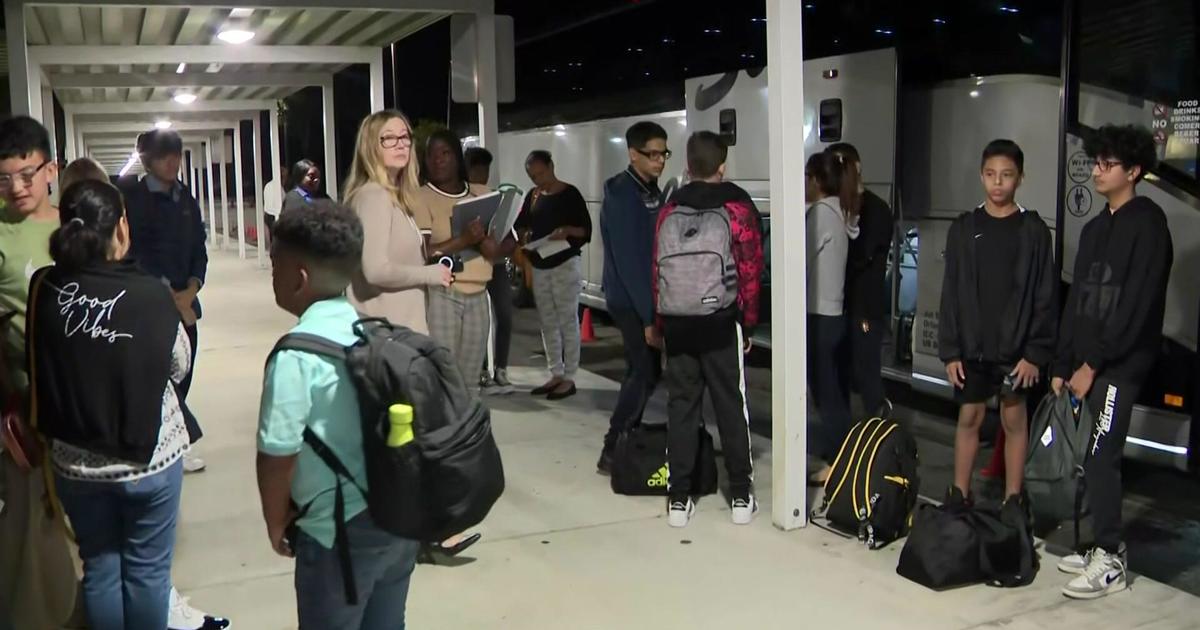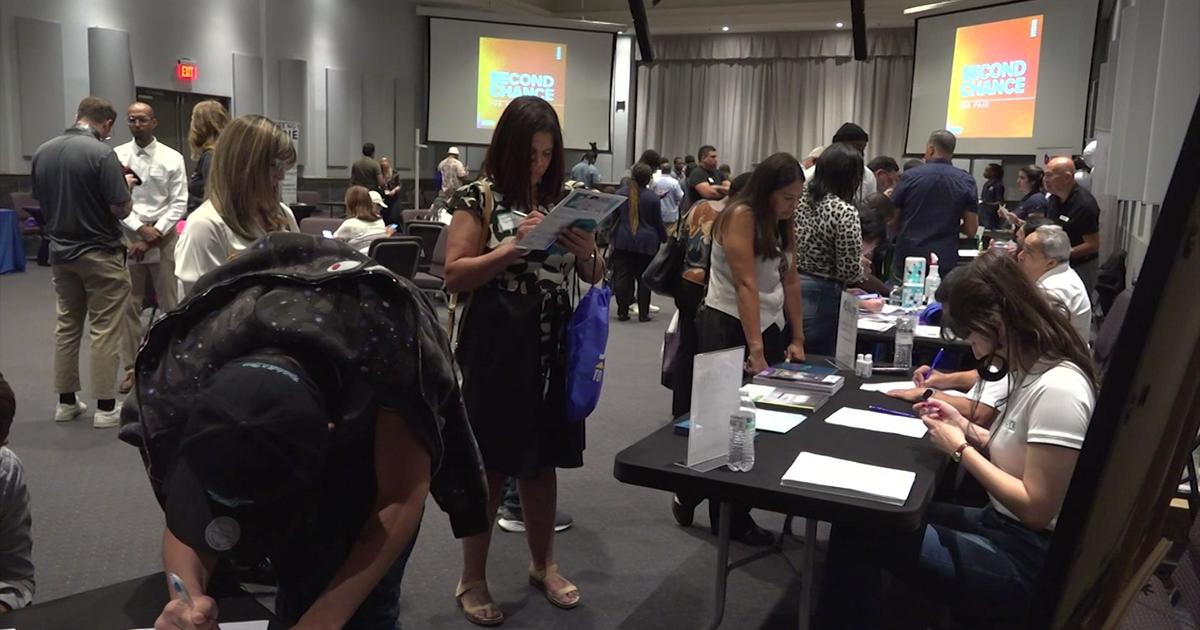Florida Has Become A Top Spot For Gamblers
TALLAHASSEE (CBSMiami/NSF) – When you take into account casinos operated by the Seminole and Miccosukee tribes, the numerous pari-mutuel facilities, day-cruise and cruise ships who call the state their home port, Florida is considered one of the nation's top spots for gamblers.
But a 307-page state-commissioned study released Monday also showed that while the opportunity to play games of chance has grown, the money spent at casinos and card rooms hasn't resulted in vast job creation outside the industry.
The state released a draft of the first part of a study by the New Jersey-based Spectrum Gaming Group on the present and future of gaming in the Sunshine State.
The study declares that Florida -- despite opposition to the growth of gambling by powerful players such as Walt Disney World and the Florida Chamber of Commerce --- is already "a major gambling state, with a wide array of options."
More important, the gaming industry is going to grow, with or haphazardly without state regulation.
"Intentionally or not, the policies established by lawmakers --- or the lack thereof --- play a critical role in the evolution and expansion of gaming," Spectrum stated. "Indeed, in the views of many, the 'evolution' and 'expansion' of gaming are largely synonymous. The industry rarely shrinks, and quite often, expands as a result of expansion."
The study comes as the state Legislature is expected to tackle the future of gambling during the 2014 session.
In a memo to the Senate that accompanied the study, Senate Gaming Committee Chairman Garrett Richter, R-Naples, simply said his committee will "review gambling statutes, to address the ambiguities, inconsistencies, and exceptions in current law, and to craft an action plan."
John Sowinski of No Casinos in Florida, an Orlando-based group opposed to the expansion of gambling, said the study shows the only way to control gambling is for lawmakers to close existing loopholes as they did in prohibiting the majority of electronic games at adult arcades in April,
Sowinski added that the state needs to rein in regulators.
"We have too much gambling and every time legislators or regulators give an inch, the gambling industry takes a mile," said Sowinski, who also criticized Spectrum for its ties to the casino industry.
With the Florida Chamber of Commerce maintaining a near two-decade opposition to the expansion of gambling, spokeswoman Edie Ousley said the business advocacy group is waiting for the rest of the study before fully commenting.
Associated Industries of Florida, a proponent of allowing mega-casinos when the idea went before the Legislature in 2012, declined comment Monday as it was still reviewing the study.
The rest of the $388,845 study is expected to look into the potential economic impacts of changing gaming across Florida, such as the impacts of ending or altering the exclusive Seminole Indian compact and allowing international casino operators into the state. It is due by Oct. 1.
Spectrum declares it isn't making any recommendations, but notes that "the combination of consumer acceptance, technological advances (such as the Internet) and government desire for revenue will continue to cause further expansion."
The study shows that the industry lags when it comes to spinning off jobs.
Gambling generated $2.47 billion last year in tax revenue for Florida, and if nothing changed with the current gaming options, including the massive drop already experienced in play on the horses, dogs and humans tossing the jai-alai pelota against a wall, that annual figure would still double by 2060.
The existing racetracks, cardrooms, state lottery and Native American casinos were responsible for 15,748 jobs last year and 10,063 indirect jobs. When retailers selling lottery tickets are included, the numbers are boosted to 55,648 direct jobs and 14,269 indirect jobs.
The Spectrum study paints a picture of a state at the crossroads of its gaming future.
"Expansion comes at a cost, both internally to the industry and externally to society," Spectrum states. "Expansion runs the risk of cannibalizing certain types of gambling --- notably the pari-mutuel industry, which has long been in decline both nationally and in Florida --- and it will sharpen the debate about how much is too much."
On the one hand, the state's historic horse, dog and jai-alai venues are simply trying to weather massive decline in play and their own internal squabbles.
Meanwhile the Alabama-based Poarch Band of Creek Indians wants to make Interstate 10 a pari-mutuel corridor --- with or without its controversial rodeo-style barrel racing at Gretna Racing --- as it owns, or has options to own, or agreements to control 10 pari-mutuel permits between Jacksonville and Pensacola in hopes of operating bingo-based slots and non-house-banked games.
Add into the mix the future of the Seminole compact, counties outside Miami-Dade and Broward wanting to add slot machines, and international casino operators salivating at the prospects of building mega-casinos in the Southeast.
Also finally, the Florida Lottery simply continues to grow, generating $4.45 billion last year, of which $1.9 billion was revenue for the state.
The state lottery is now the third largest in the nation, with revenue totals behind only New York and Massachusetts.
The first chance the House and Senate gaming committees would have to discuss the full study would be the second scheduled committee week of the fall, starting Oct. 7.
The study outlines the growth in games of chance, with card rooms and table options outstripping the rapid decline in play on greyhounds, horses and jai alai, which have struggled against a decline in attendance and purses to attract better competition.
The state has seen its revenue from those pari-mutuel activities dropping from $119.4 million in 1985 to $11.8 million last year, a 91 percent decline.
Revenue from greyhound racing has dropped from $77.2 million to $3.7 million from 1985 to 2012, while jai alai is down from $29.7 million to $378,000 in the same time in its taxes to the state.
To save costs, pari-mutuel operators have reduced the number of races and, in the case of jai alai, the number of players on a roster. Greyhound operators have also proposed running races with just two dogs in each race to meet state operation requirements.
The News Service of Florida contributed to this report



